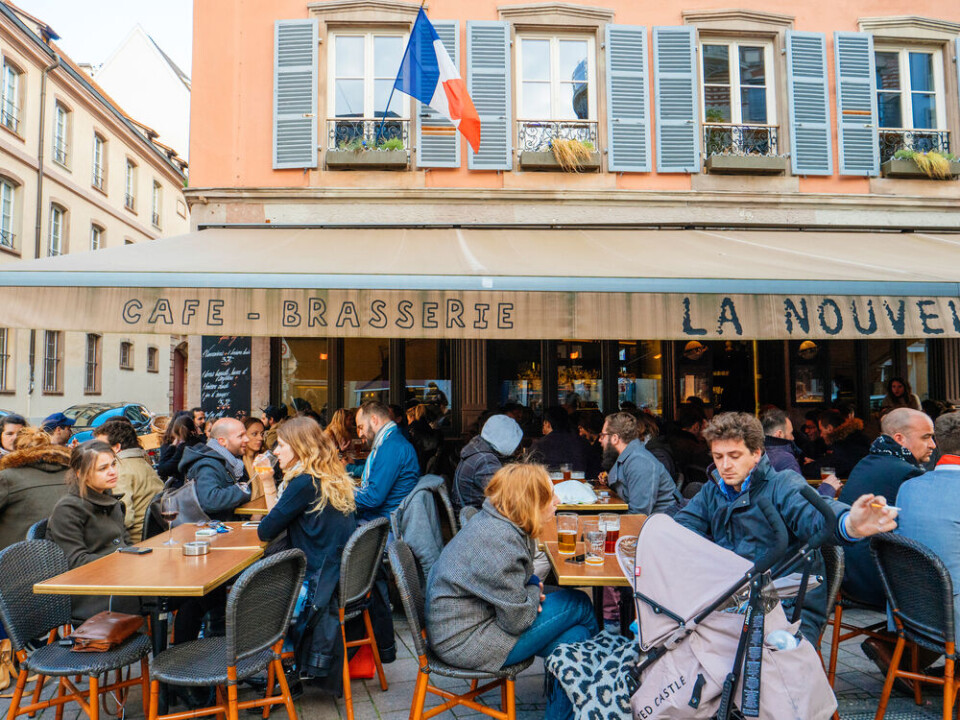-
New Paris-Jersey direct flight to launch this summer
Loganair route forms part of Channel Island’s tourism boost plan
-
Death of right-wing protester in Lyon sparks fears of further political violence
Quentin D, 23, died after reportedly being ambushed by far-left activists near site of political conference
-
Red flood alerts continue in south-west - and more heavy rain expected
Garonne river is particularly affected. French weekly weather forecast February 16 - 20
Curfew, cafes, work, travel: France's new Covid rules from June 9
The next stage of deconfinement begins today with changes for eating out, sports, travel, work, events and public spaces - and the nightly curfew starts later

France enters its next stage of deconfinement today, marking the start of a new set of Covid rules for what you can and cannot do in France.
It comes as daily Covid cases have been falling in France since the beginning of April.
Santé publique France reported 6,018 new Covid cases on June 8.
The number of Covid patients admitted to the hospital over the last seven days is 2,527.
And France’s vaccine campaign continues, with more than 28 million people having received the first dose as of June 7, and more than 14 million people being fully vaccinated.
We explain which rules are changing from today, Wednesday, June 9.
Curfew going back to 23:00
From today the national curfew is going back by two hours to begin at 23:00.
This means restaurants and bars will be able to stay open for longer in the evening.
Curfew is expected to end altogether on June 30.
Restaurants, bars and cafés to reopen inside tables
Restaurants, bars and cafés will be able to reopen inside spaces at 50% capacity, with a maximum of six people per table.
Terraces will be allowed to open at 100% capacity (rather than 50% currently allowed), with a maximum of six people per table.
Indoor sports to resume
Indoor sports centres including gyms, swimming pools, and sports halls will reopen to the general public.
They will have to follow health protocols including being restricted to 50% capacity and keeping a space of two metres between each person.
Contact sports must still be played outside.
International travel easing for EU visitors to France
All fully vaccinated people living in Europe will be able to travel to France as long as they can show proof of vaccination upon entry.
This includes paper vaccine certificates or a digitised version as part of the European Health Pass system.
Children aged over 11 who have not yet been vaccinated can show a PCR test with a negative result, taken less than 72 hours before arrival.
Read more: France ready for EU digital travel pass scheme: How will it work?
Work from home rules relaxed
Current rules mean employers must allow staff to work from home if the tasks they perform can be done outside their place of work.
But from June 9, employers will be able to define a minimum number of days each employee can work from home.
The government will allow up to three days per week at home for civil servants.
Sports and cultural events can have 5,000 attendees
Sports stadiums and cultural spaces such as theatres can now allow entry to up to 5,000 people at one time.
People attending large gatherings will be allowed entry upon showing their health pass with proof of full vaccination, or a negative PCR test taken within 72 hours.
Open-air festivals will also resume with a 5,000-person limit and admittance upon showing a valid health pass.
Visitor numbers to increase for other public spaces
Museums, covered markets and shops will be able to allow one visitor per 4m2.
Religious spaces and libraries will be able to have one attendee in every other seat.
Funerals will be able to have up to 75 attendees.
Thermal spas will no longer have visitor limits.
Gatherings of over 10 people in public spaces will continue to be banned, with the exception of guided tours.

Related stories
Your France Covid travel queries: NHS app, infection proof, children
UK-France Covid travel June 9: Non-vaccinated can come for family need
























